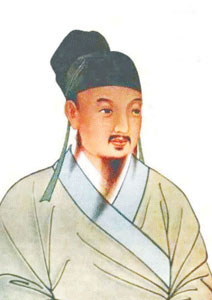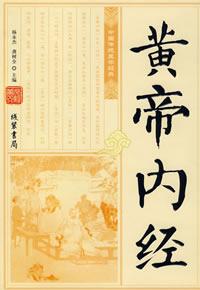Eating and Eating Practices for your Health in TCM
Thousands of years ago, the Chinese people were already practicing specific principles of eating and eating practices as set out by the Traditional Chinese Medical Doctors of those ancient times. These principles and practices began to be recorded in chinese medical texts dating to more than 3,000 years ago. As a practitioner of Traditional Chinese Medicine, I find it quite fascinating that “modern” advocates of such practices as chewing your food properly and eating at regular intervals are advocating eating practices that Traditional Chinese Medicine began to document and advocate many thousands of years ago.
In this article, I will summarize one of the core principles of the Chinese Medicated Diet, namely, Eating at Regular Times and Intervals. This is but one aspect of the Chinese Medicated Diet – but it is an important aspect, it has been practiced, developed and refined within Traditional Chinese Medicine over many thousands of years. When combined with other protocols of the TCM Medicated Diet, these practices can prove remarkably beneficial to your health. As with many other Traditional Chinese Medical protocols and practices, there is a depth and nuance to these TCM practices that is not well understood by western health practitioners who may adopt and advocate one particular component of what is in fact a complex and nuanced medical system.
Here, I’ll provide examples of one small aspect of the Chinese Medicated Diet quoted from chinese medical texts from the ancient or classical periods which serve to illustrate the deep roots of chinese medicine – and when you compare these quotes to recommendations only now being made by western medicine, you’ll see that many of these have been known and practiced for hundreds, if not thousands of years in Traditional Chinese Medicine – and are only in recent years being “discovered” by western medicine.
One thing of course to keep in mind is that Traditional Chinese Medicine is very much tailored to the uniqueness of each individual, and while the practices set out below are beneficial to your health, a Chinese Medicated Diet tailored specifically to you as an individual can prove even more so.
Eating at Regular Times and Intervals
Towards the end of the Warring States Period 战国时代 (475BC-221BC), the book Lu Shi Chun Qiu 吕氏春秋 had already pointed out that if one wants to be free from diseases, one should eat at a regular hour and at regular intervals.
It was suggested that we should make a habit of eating 3 main meals per day with an interval of 5 hours between meals.
Books such as Qian Jin Yao Fang 千金要方 and Zun Sheng Ba Jian 遵生八箋 held similar views about eating. They stated that one should not eat until one feels hungry, and not drink until very thirsty.
Do’s and Don’t during Eating
There is a very famous saying in the ancient book Lun Yu, 论语, where Confucius is quoted as specifically advising “Eat and sleep in silence without speaking”, “食不言寝不语”, meaning that one should concentrate one’s mind when eating. Do not engage in conversation which distracts your mind and hampers your digestion.
In the book Qian Jian Yao Fang “千金要方” it says: “食无大言,及饥不得大語” which, translated, means “When one eats, one should not talk; when excessively hungry, one should not make loud noises while eating”.
The book Qian jin Yao Fang千金要方 also says one should not eat when you are depressed, anxious or angry as such emotions are harmful to health. When one eats while feeling great anger, the spirit will be shocked and one will have dream-disturbed sleep.
The book Da Sheng Yao Lu 达生要录 also says, “One must not eat immediately after feeling anger, nor must one lose ones temper right after a meal. One must not eat when one is angry, in deep speculation or in fear. One must not eat when one is drowsy or sleepy, or the food will stagnate in the stomach.”
Our digestive tract loves music
“脾好音聲,聞聲即動而磨食。” – 寿世保元
The book Shou Shi Bao Yuan 寿世保元 states that: “The spleen is fond of music. It starts to move and ‘grind’ food to the rhythm of music”. This statement implies that we should eat in a harmonious environment with soft and gentle music to help improve our digestion and food assimilation.
《醫說》中云:「食不欲急,急則損脾,法當熟嚼令細」。
The book Yi Shu 医说 has a tract that emphasizes that one should not eat in haste as this can damage our digestive system. Food should be very thoroughly chewed before swallowing.
All of the above emphasize the importance of eating in a relaxed and cheerful manner and taking the time to chew thoroughly so that one can digest and assimilate food adequately.
Our digestion can benefit from a short slow walk and an abdominal massage after a meal
食毕当行步踌躇,计使中数里来。行毕使人以粉摩腹上数百遍,则食易消,大益人,令人能饮食,灭百病。– 唐·孙思邈《千金要方·饮食》。

Sun Simiao was a famous Traditional Chinese Medicine doctor of the Sui and Tang dynasty and made a significant contribution to Chinese medicine theory and practice.
In his book Qian Jing Yao Fang 千金要方 (“Essential Formulas for Emergencies”), the ancient chinese doctor Sun Simiao 孙思邈 (? –682AD) held that one should take a walk (just over 1 mile) after a meal. To help improve digestion, he set out that one can rub the stomach area with warm hands a couple of hundred times. These activities can improve one’s appetite and eliminate various kinds of diseases.
“饱食即卧,乃生百病,不消成积聚。”孙思邈也反对饥饿时入睡,认为“不食即卧,令人心虚、多汗、多梦。”
Sun Simiao 孙思邈 also advised that after eating a full meal, one should not lie down to sleep immediately. Also, when one goes to bed feeling hungry, the heart becomes deficient and one will have excess sweating and dreams.
《内经》 “胃不和则卧不安”
The ancient chinese medical text Huangdi Nei Jing,黄帝内经 (Yellow Emperor’s Inner Canon, written in the Warring States period between 475BC-221BC) stated that “When the stomach is in disharmony, then, one cannot feel relaxed while sleeping”. This book is one of the fundamental doctrinal sources for Traditional Chinese Medicine and has been read and studied for over two thousand years.
While most ancient medical books suggested that one should take a leisurely walk and massage the abdomen after eating, as well as refrain from sleeping while in a state of excessive hunger, the ancient medical doctors also opposed vigorous exercise immediately after eating. The ancient chinese medical doctors believed that intense movement after a meal is harmful to health.
In the book Shou Shi Bao Yuan 寿世保元, it is said that “one should not walk fast, nor ride a horse. One should not climb high or dangerous places. In doing so, the excess fullness of Qi will harm the Zang and Fu organs.
Modern medicine has proved that engaging in heavy exercise right after eating can cause undesirable effects such as dizziness, headaches, nausea and vomiting as blood vessels are expanded in the digestive tracts to support the digestive function and to assimilate food; therefore less blood is available to support the rest of the body. Thus, lack of oxygen and sugar to the brain can cause dizziness and headaches. To quickly alleviate such symptoms and to prevent fainting, nausea and vomiting may be induced by the body as an emergency regime.
Modern research also shows that doing heavy exercise right after eating can also cause severe stomach cramps as blood is forced back to the extremities. When there is not enough nutritional support and oxygen supply to the stomach and digestive tracts, one may experience food retention (indigestion) and hence, discomfort or cramping may occur.
Back thousands of years ago, the Ancient Chinese through detailed observation and experience, documented theories and principles of eating and eating practices to promote health and longevity. Modern western medical research now validates these ancient chinese medical practices. One may want to follow the age-old lessons and advice from the Ancient Chinese Medical Doctors so that one can live healthily to a ripe old age.
About the Author
Bernadette Yin-Fun Hayhurst is an Ontario Registered Acupuncturist and Traditional Chinese Medicine Practitioner who works in her own practice in Mississauga and who also lectures in Chinese Herbal Medicine to students at the Toronto School of Traditional Chinese Medicine. Bernadette can be contacted on 416-722-8813 for enquiries and appointments.
 Copyright secured by Digiprove © 2016 Bernadette Hayhurst
Copyright secured by Digiprove © 2016 Bernadette Hayhurst 



